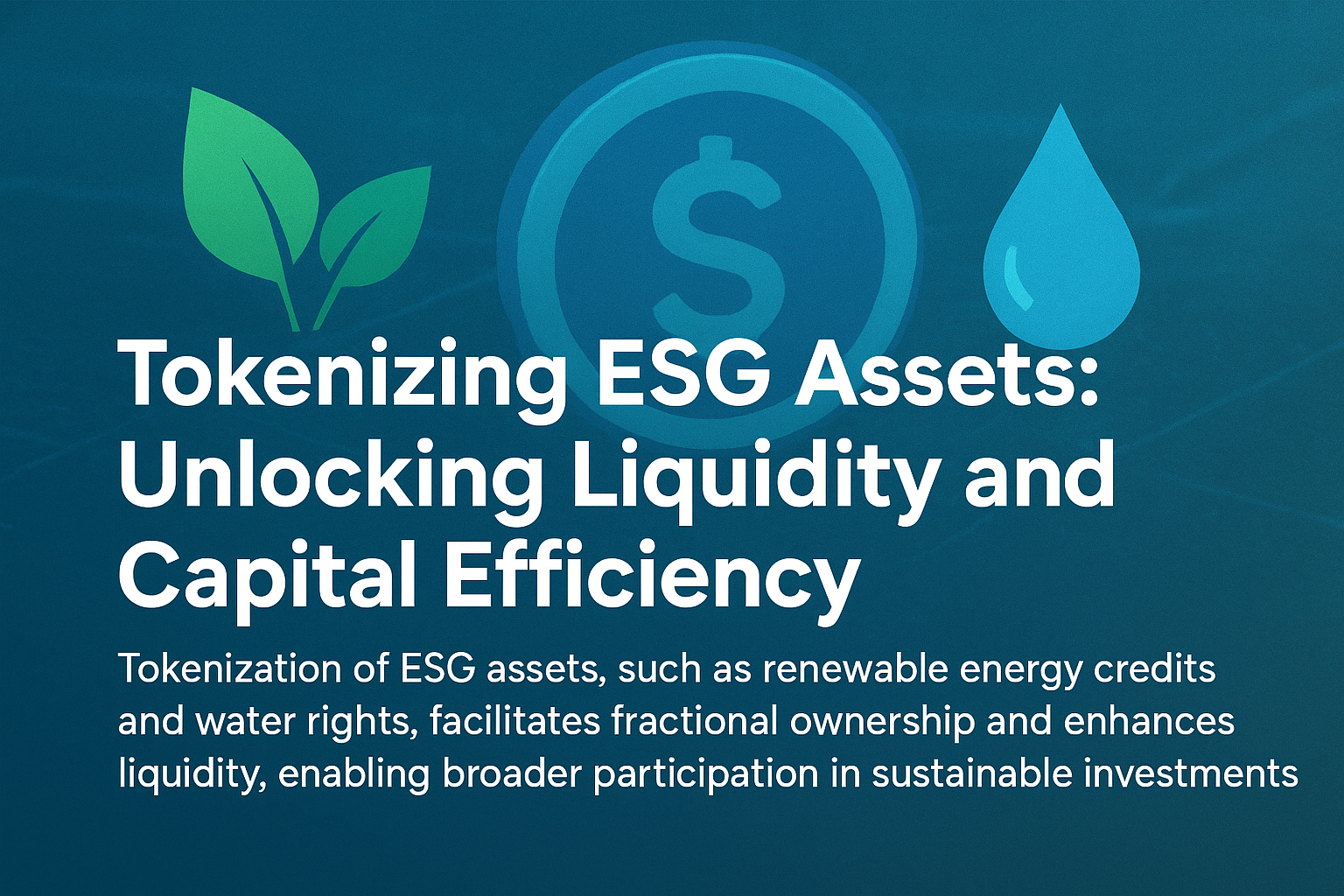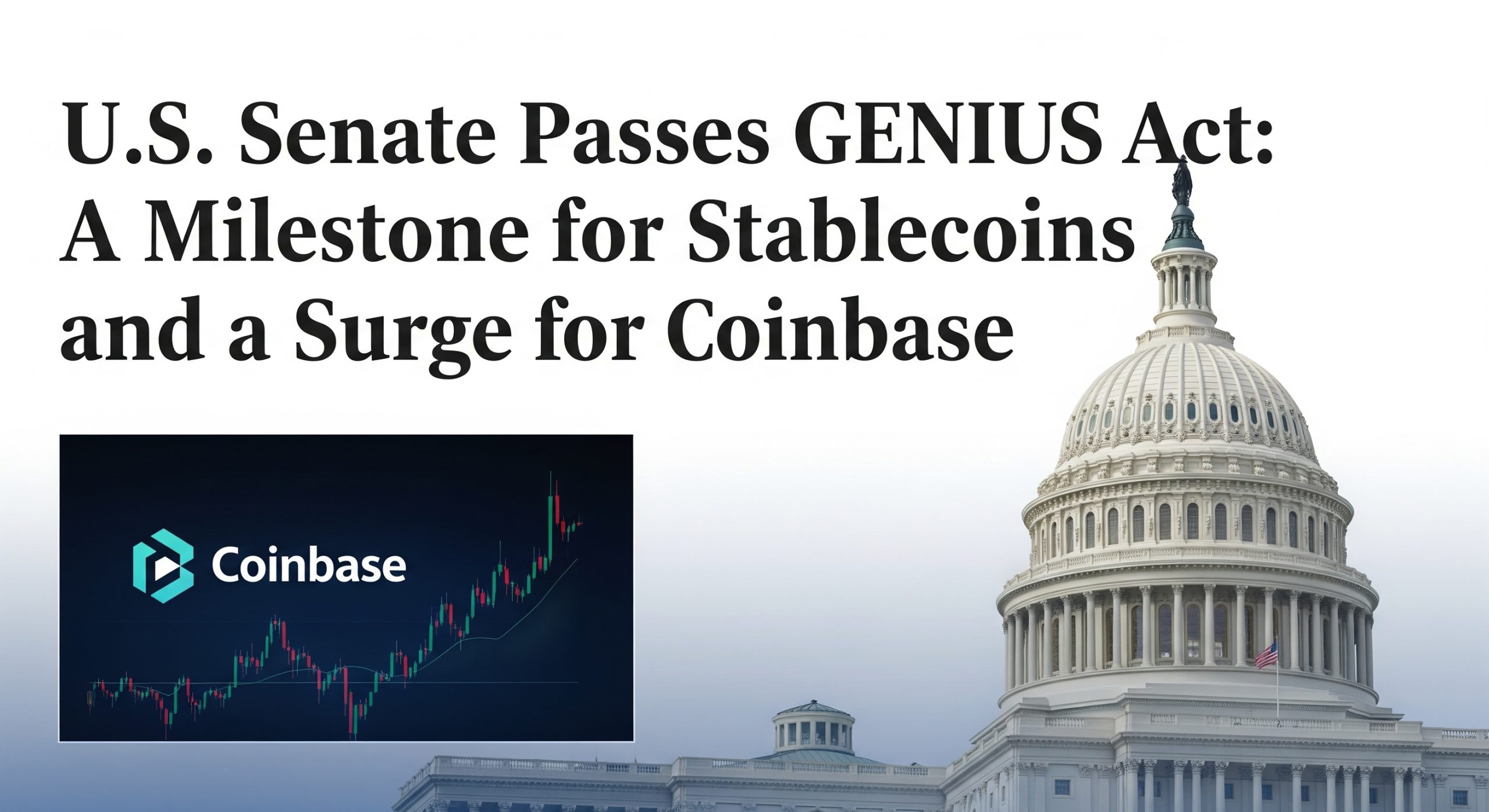Introduction
Sustainable investing has moved from being a niche practice to a mainstream priority for investors worldwide. Environmental, Social, and Governance (ESG) assets—ranging from renewable energy credits to carbon offsets and water rights—represent a growing segment of the financial markets. Yet, despite the rising interest, many ESG assets remain illiquid, fragmented, and accessible only to a narrow group of institutional players. Tokenization is emerging as a transformative solution, promising to democratize access, improve liquidity, and drive capital efficiency in the ESG space.
What Are ESG Assets and Why They Matter
ESG assets encompass a wide variety of instruments tied to sustainability and ethical governance. Examples include renewable energy certificates, carbon credits, water usage rights, and impact-focused investment vehicles. These assets play a crucial role in financing global efforts to decarbonize, conserve resources, and promote equitable social outcomes. However, their structures are often complex, highly localized, and difficult to trade—creating barriers to broader participation.
The Power of Tokenization
Tokenization converts the rights or ownership of a real-world asset into a digital token recorded on a blockchain. By doing so, it enables fractional ownership, near-instant settlement, and transparent recordkeeping. For ESG assets, tokenization can streamline verification of impact metrics, reduce administrative overhead, and open these markets to retail and mid-sized institutional investors who were previously excluded.
Instead of purchasing an entire water-rights contract or a large batch of renewable energy credits, investors can buy and trade fractional shares represented by digital tokens. This fractionalization improves market depth, allowing capital to flow more freely into sustainable projects.
Unlocking Liquidity
Illiquidity has long been a stumbling block in the ESG sector. Many credits or rights are traded in bespoke bilateral deals, often with long settlement times and opaque pricing. By representing these instruments as blockchain-based tokens, marketplaces can facilitate real-time trading, tighter spreads, and greater transparency. The result is a more dynamic, efficient, and resilient ecosystem where sustainable projects can attract capital at a lower cost.
Enhancing Capital Efficiency
Tokenization doesn’t just increase liquidity; it also improves capital efficiency for issuers and investors alike. For issuers, tokenized ESG assets can be structured to attract a broader range of investors, raising funds faster and at potentially better valuations. For investors, fractionalized tokens allow diversification across multiple ESG asset classes with lower minimum investment thresholds. In turn, this can accelerate the flow of private capital into initiatives such as renewable energy infrastructure, clean water projects, and community development.
Broader Participation in Sustainable Investment
One of the most promising aspects of tokenization is its democratizing potential. Historically, access to ESG-linked opportunities like large-scale renewable energy credits or water rights was restricted to major corporates or specialized funds. With tokenization, these opportunities can be opened up to smaller investors, fintech platforms, and even retail participants, expanding the base of support for sustainable projects.
Overcoming Challenges
Despite its promise, tokenizing ESG assets is not without hurdles. Regulatory compliance, robust verification of ESG claims, and the creation of standardized frameworks are essential for building trust in these new digital markets. Additionally, investor education and the development of user-friendly trading platforms are crucial to ensure that tokenization delivers on its inclusive potential.
A New Frontier for ESG Finance
Tokenization of ESG assets represents a paradigm shift for sustainable finance. By enabling fractional ownership, enhancing liquidity, and unlocking capital efficiency, this technology can accelerate the global transition toward a more sustainable and inclusive economy. As firms like Antier Solutions and platforms such as Investax explore these models, we may be on the verge of a new era where ESG assets are as easy to trade as traditional securities—ushering in unprecedented growth for both investors and the planet.




